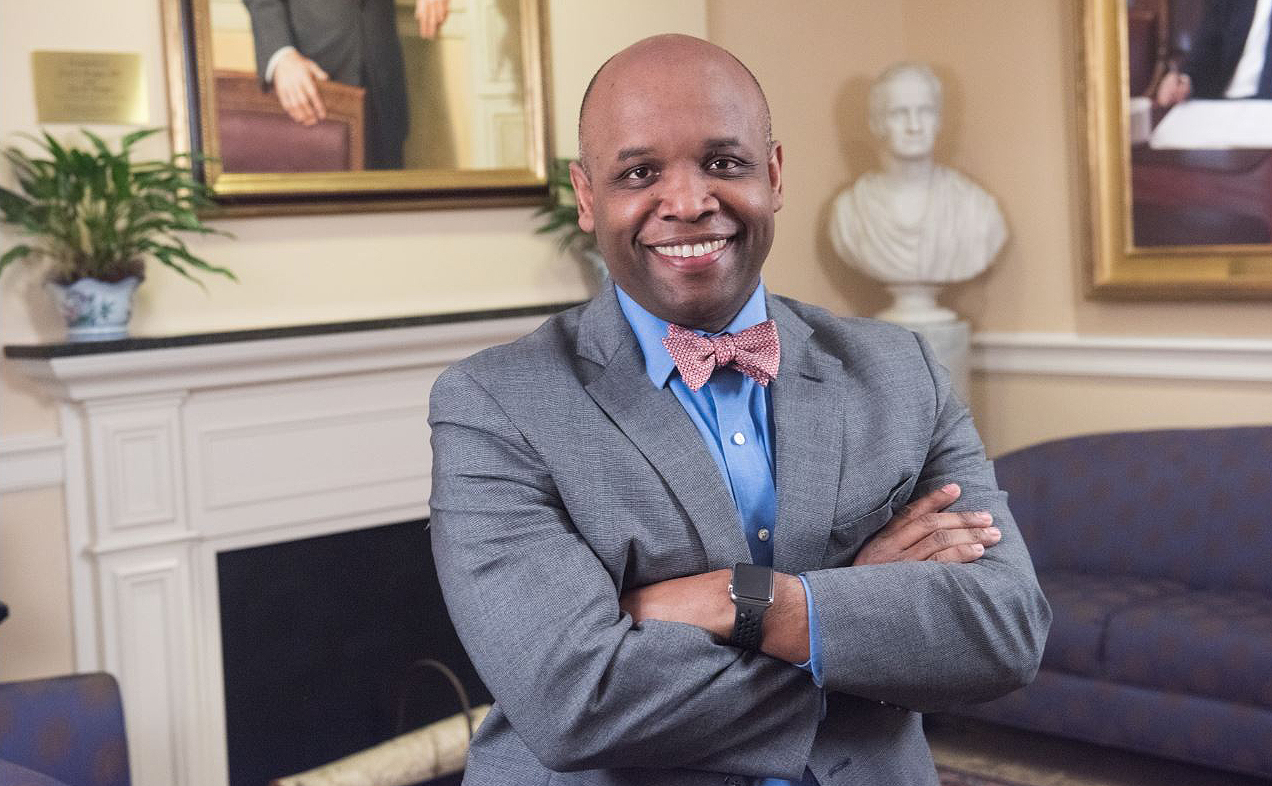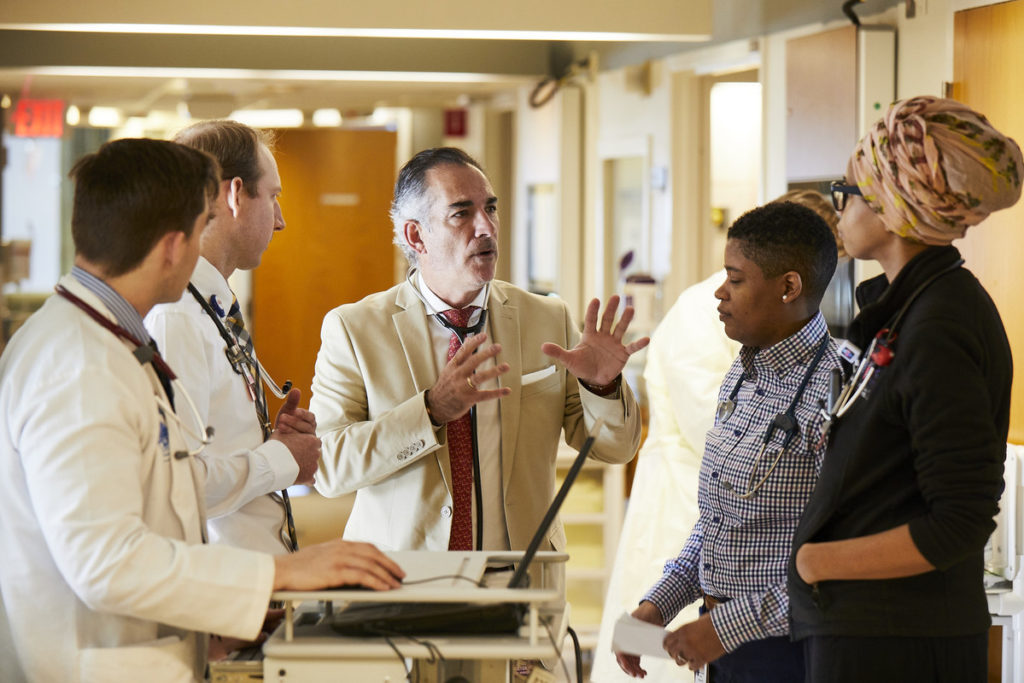Massachusetts General Hospital — Harvard Medical School’s first and largest teaching hospital — trains about 15,000 healthcare professionals at any given time. They include medical students, nursing students, as well as residents and fellows furthering their medical training. The hospital has bold plans for modernizing its educational mission. O’Neil A. Britton, MD, chief medical officer and senior vice president, explains.
Why does hospital-based education need to change?
Like everything else, the way we educate people is evolving. The tools we use to deliver content, how we assess student competency, and how we individualize to meet each student’s developmental needs are all opportunities for improvement.
We at Mass General, which was founded with education as one of its pillars, have an opportunity to lead the nation in rethinking what our education will look like.
Healthcare — and especially medical — education has been largely centered on the concept of “see one, do one, teach one.” But there is great variation in our teaching skills, the educational tools used and the education environment. That paradigm is ripe for transformation.
We at Mass General, which was founded with education as one of its pillars, have an opportunity to lead the nation in rethinking what our education will look like. How can we adapt existing tools and develop new ones? That includes tools like video education, animation, artificial intelligence, virtual reality and practicing in a simulated environment. It includes tools that allow us to test hypotheses and challenge closely held misinformation.
How do you hope to put these ideas into practice?
We want to create an academy to catalyze the education initiatives already occurring across our community of educators. We want to enhance communication and further promote education research and innovation. Now, education largely occurs in the confines of the individual departments and disciplines. The academy would be an attempt to give education across disciplines a home, an institutional recognition of its importance to the future of health care.
We envision a space — a “hospital” within the hospital — dedicated to education, which is fully staffed and simulates patients going through all the activities that happen in the hospital, from an initial visit to discharge.

How would simulation improve education?
There would be space configured to be an operating room, an emergency department, a clinic and an intensive care unit as well as classrooms. Training personnel pretending to be patients would come in, get tests, have their needs assessed, get a care plan and get transferred, admitted or discharged.
Simulation would give clinicians from different specialties an opportunity to practice procedures and decision-making as a team without putting patients at risk. It would be interprofessional — nurses, doctors, physician assistants, therapists, interpreters and others would be there together learning to manage the complexity of caring for patients.
This proposed facility, which we call The Learning Hospital, would also have self-learning modules, designed with interactive images, animations, narrations and self-assessments. In a controlled environment with simulation and self-learning modules, learners can develop familiarity and master skills.
Education tools can help bring out the inner brilliance in all of us. They can promote the inquisitiveness and curiosity that pushes medicine forward.
Why is interprofessional learning so important?
It reflects actual clinical practice. A simulated interprofessional learning experience will encourage interaction and teamwork. There is nothing stronger than when we work together as a team. With or without a new space, we also plan to develop and test models for successful interprofessional education.
Patients should feel confident that whomever is in front of them learned 100 percent of the material they’re supposed to know.
Isn’t cost a barrier, particularly since healthcare professionals are reimbursed for their clinical time but not their teaching time?
That is why we are interested in philanthropy. We don’t see this barrier being overcome by federal funding. It is largely the institution that subsidizes education, understanding that it contributes to how we care for patients and unrelentingly try to improve that care.
I’m just throwing out ideas, but there are many creative thinkers at Mass General trying to execute these plans. And they need time and space to do it.
Why should patients care about education?
Patients should feel confident that whomever is in front of them learned 100 percent of the material they’re supposed to know. They should feel comfortable that we’re always practicing and trying to be safer and more humane.
We are committed to educating the next generation of healthcare professionals, to lifelong learning of all hospital staff and to patient education. That will benefit patients here and around the globe.
To learn more about how you can support education programs at Mass General, please contact us.

